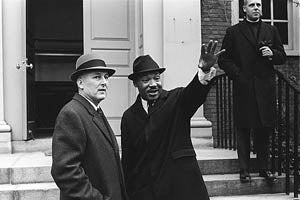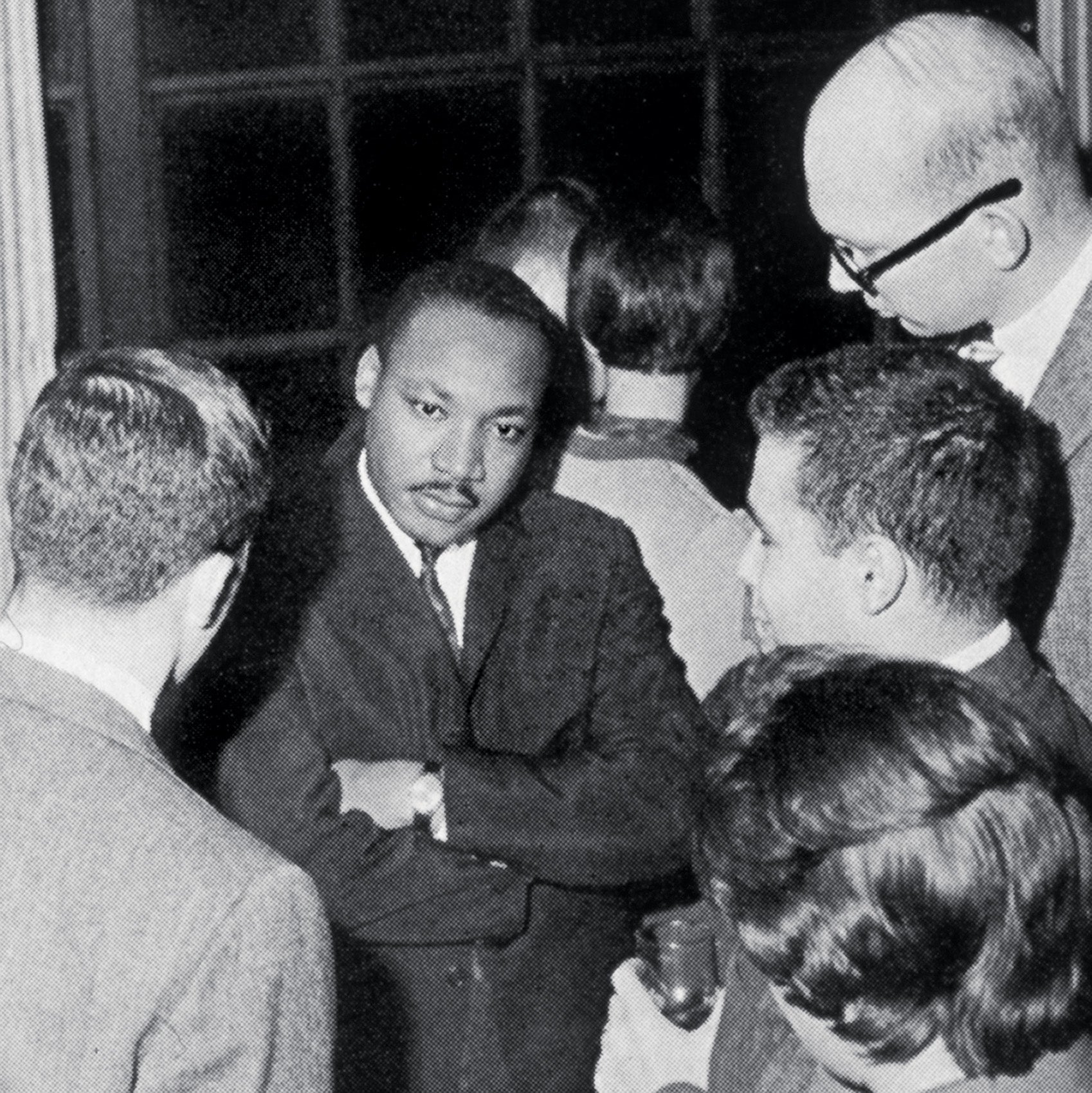The Rev. Dr. Martin Luther King Jr. was no stranger to Harvard University: He attended classes as a special student in 1952 and 1953, taking philosophy courses on Plato and on Alfred North Whitehead; he also was a guest preacher at Harvard’s Memorial Church during the 1959–1960 school year, the first in a string of visits to the University’s chief pulpit.
Then, in October 1962 — six months before he would be imprisoned in a Birmingham jail, 10 months before the March on Washington, almost two years before the signing of the Civil Rights Act, and almost six years before his assassination — King spoke at Harvard Law School on “The Future of Integration.”
In the speech, he called for strong, forthright civil rights legislation, and refuted what he called the myth that time and education were the only ways to bring about change. “It may be that the law cannot make a man love me,” he said, “but it can keep him from lynching me.”

In addition to working through legislative channels, King also stressed the importance of being willing to engage in nonviolent direct action.
“More and more we are coming to see that hate is destructive. And it destroys not only the hated, but also the hater. It destroys not only the object of hate, but the subject of hate. … Non-violence gives the individual the capacity to struggle, to tear down an evil and an unjust system, while at the same time, maintaining an attitude of good will toward the perpetrators of that unjust system.
“It will take time to solve the problems and they go on to say that only time can solve it. And they would say, we’ll just be patient, and wait a hundred or two hundred years; time will work it out. Well, the only answer to this myth is that time is neutral. It can be used either constructively or destructively.
“And I’m convinced that at many points, the people of ill will have used time much more effectively than the people of good will … Somewhere we must come to see that human progress never rolls in on the wheels of inevitability … Human progress comes as a result of the tireless efforts and the persistent work of dedicated individuals … We must help time and always realize that the time is always right to do right.”
You can listen to a clip of the speech on SoundCloud, and you can hear the speech in its entirety on the Harvard Law Forum’s YouTube channel (part 1 and part 2).
Related Reading
https://news.harvard.edu/gazette/story/2013/01/when-king-came-to-harvard/
